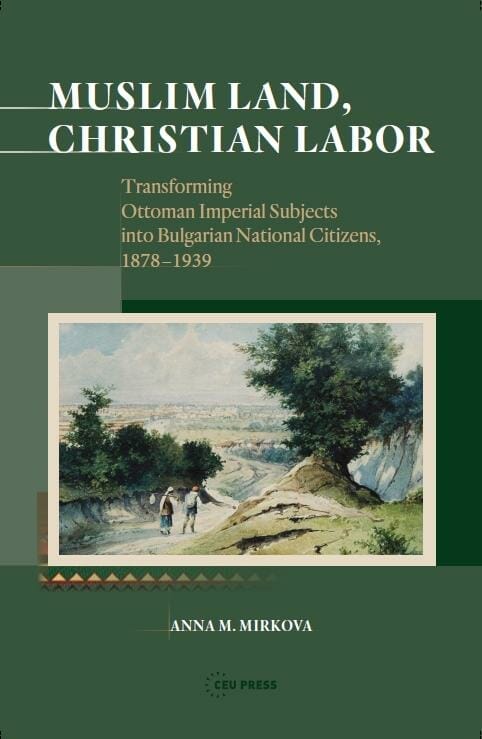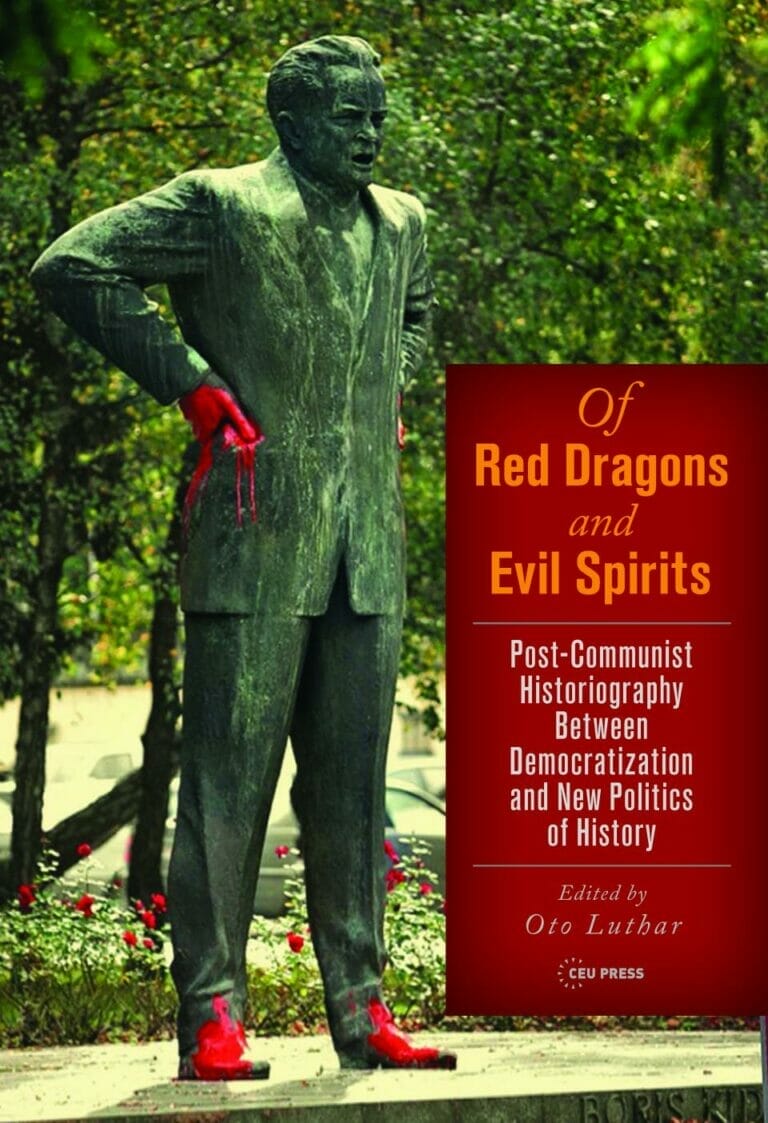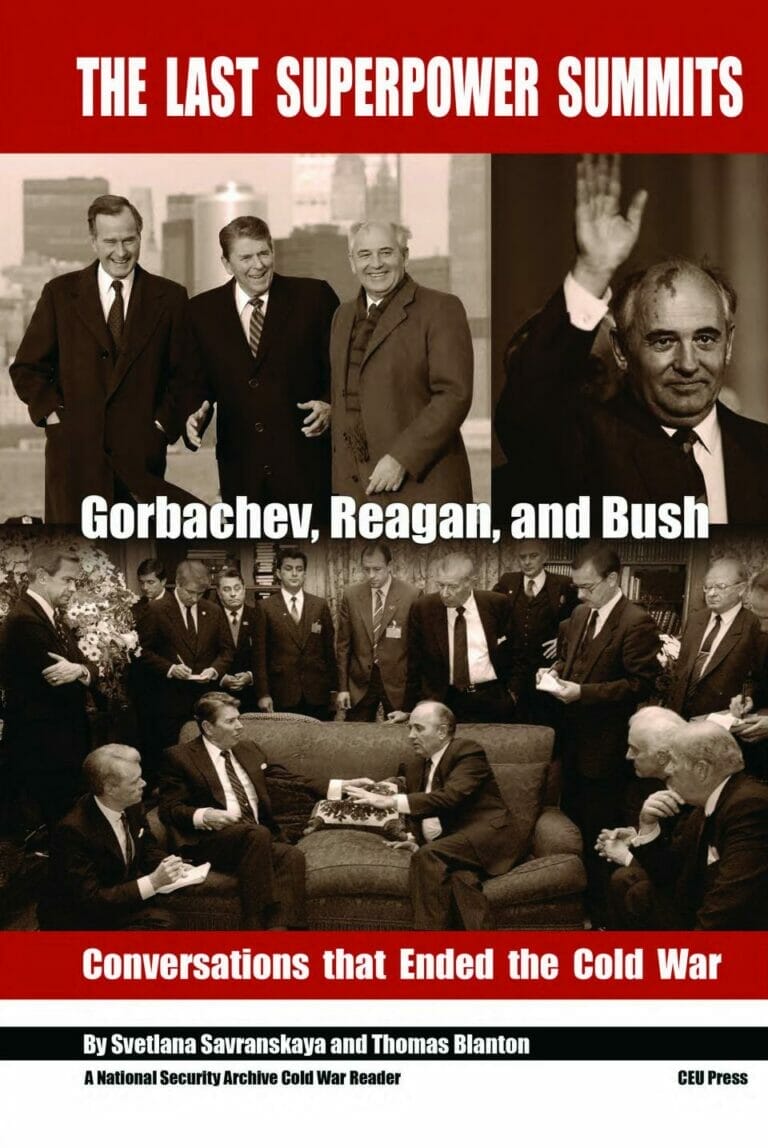Recommended books
Muslim Land, Christian Labor
The issue of land ownership is in the focus of the analysis of three-quarters of a century in Bulgaria, especially in its southern region that existed as a quasi-sovereign state of Eastern-Rumelia between 1878 and 1908. Dramatic changes had begun by the promulgation of the Land Code of the Ottoman Empire in 1858 and received new dimensions after the Russo-Ottoman War.Mirkova explores how and why Muslim lands were transferred to Bulgarian Christians, including what happened to agricultural lands that belonged to vakýfs (pious-charitable endowments.The book opens a different lens to this process of identity formation in the transition from empire to nation. "The period spanning the late nineteenth century until the outbreak of the Second World War was decisive both for the articulation of 'minority' as a political category and for inscribing Muslims onto the matrix of national citizenship in Christian majority states."
Of Red Dragons and Evil Spirits
"The amendments of the Bulgarian Criminal Code introduced between 1990 and 1993 were exclusively meant to eliminate politically motivated punishments rather than introduce new rules applicable to perpetrators of the communist repressions." Even today, "there is an air of quasi-reconciliationism based on avoidance, without the confession, apology, and forgiveness needed for a real reconciliation."Developments in post-communist memory politics in Bulgaria are discussed in a comparative collection."The confronting of the Holocaust has been happening in Bulgaria at two gears: faster and more adequately in research, slowly and controversially in the politics of memory.""The leftist voices stressed the deportation of the Jews from Macedonia and Thrace, insisting on the fascist nature of the regime, the right wing focused on the rescue of the Jews from the 'old territories'."
The Last Superpower Summits
Gorbachev:Mr. President, you say that the English and French missiles are not defending West Germany. Well, who will defend the GDR? And Czechoslovakia, Romania, and Bulgaria? Who will defend them? That argument does not work. October 1986Face to face conversations of superpower leaders on 1000 pages.Memorandum from Scowcroft for President Bush: The message that you bring to the Poles will be watched throughout Eastern Europe, particularly in Hungary. But even Czechoslovakia, the GDR and Bulgaria, which have resisted reform, are aware that you have succeeded in forging a common strategy for the West that links economic assistance to fundamental economic and political reform. June 1989Gorbachev: I promise you that tomorrow there will be talk of Poland's western territories, about Transylvania, Macedonia. About a million Turks live in Bulgaria. In a word, if we do not keep the issue of territorial integrity and inviolability of borders under control, chaos will break out from which we will never extricate ourselves. July 1991
Books fully or partly on Bulgaria and Bulgarians
- A book of comparative intellectual history discusses how socialist ideology emerged as an option of political modernity in the Balkans.
- The series in the history of medicine starts with a Bulgarian monograph on social legislation and population policy in the interwar period.
- The author of the now classic Balkan Family Structure, dedicated a large volume to the analysis of the posthumous fate of Vasil Levski, of which an abridged paperback version was also published;
- How the Bulgarian Revival was instrumentalized for political purposes in the 20th century;
- An analyis of Bulgarian history writing focusing on the time span between Stambolov and Zhivkov;
- Bulgaria was also targeted by the book distribution program of the CIA since the 1950s;
- A book on anti-corruption policies by a renown Bulgarian social scientist;
- A study of the political economy of transition from command to market economy;
- A comparative review of the control of political parties over the media in Eastern Europe;
- Together with twenty-eight more post-communist transition countries, the political and economic performance of Bulgaria is also examined as part of a search of varieties of transition models.
Other CEU Press books also abound in references to Bulgarian history and culture
- The four-volume undertaking quotes and comments specimens from texts that shaped national identities in eastern Europe. Besides the “Memorandum of the Secret Central Bulgarian Committee” (1867) Bulgaria is represented by Neofit Rilski (1835), Beron (1855), Zografski (1858), Botev (1871 and 1876), Verkovich (1874), Marinov (1891), Gologanov (1891), Vazov (1894), Konstantinov (1895), Kyorchev (1907), Strashimirov (1918), Penev (1930), Mutafchiev (1931), Janev (1933), Hadzhiyski (1938), and Sheytanov (1942);
- Witches and priests in the Bulgarian village are analyzed in the series on demons and spirits;
- 19th c. textbooks and journals are scrutinized for the presentation of Bulgarian identity; the same issue is approached from 19th c. studies on “race” in another essay; and Bulgarians will read with interest the description of the paths of Macedonian supra-nationalism a hundred years ago;
- Still with regard to national identity, a study discusses common heroes and divided claims between Macedonia and Bulgaria, while in the same book an essay treats sounds and noise in socialist Bulgaria;
- The handbook of biographies contains entries on the following Bulgarians: Blagoeva, Ivanova, Karamichailova, Karavelov, Karavelova, Karima, Konova, Malinova, Zlatareva, and Zlatoustova;
- Straight Haussmannian boulevards drawn in Sofia in the frame of European town-planning;
- The book on eugenics in east and central Europe presents the subject in the interwar Bulgaria;
- Exploring the development of ethnic diversity and national tensions in the Balkans;
- In the volume on the expansion of Stalinism Bulgaria received a separate chapter next to other variants in east Europe;
- The analysis of the impact of Radio Free Europe also covers Bulgaria at detail;
- The US government kept sponsoring the émigré Bulgarian National Committee under the umbrella of the Assembly of Captive European Nations until the very end of the Cold War.
- Images of the west are being explored in Bulgarian travel writing during socialism;
- The treatment of religion under communism through the case of Vanga, a mystic prophetess;
- Artistic interactions within the Soviet bloc and with the west between 1945 and 1989;
- The Bulgarian legacy of 1968 is essentially exemplified by Zhivkov’s urging Brezhnev “the sooner troops are sent (to Czechoslovakia) the better;”
- A fresh interpretation of the contexts, meanings, and consequences of the revolutions of 1989 contains numerous references to Bulgaria;
- The seminal CEU Press title on the collapse of Soviet domination
- The analysis of today’s history writing between academic standards and political agendas;
- An essay discusses the “museumizing” of the socialist past in post-1989 Bulgaria;
- The idea of the desegregation of Romani education originated in Vidin. An account on how far the process has progressed across Eastern Europe;
- A rich panoply of remembrances of the communist era, and attempts to handle traumatic pasts;
- The six-country comparative sociological research includes Bulgarian village studies of post-communist rural transformation;
- “The Bulgarians don’t object if they disagree, especially if they disagree with the authority”-on how East-European mindset adapts to capitalism;
- Measures to protect Bulgarian children from the adverse effects of television is the last item to mention.
Bibliographic data in order of occurrence above
Some of the older titles are out of print nevertheless bookshops or online distributors may get you print-on-demand copies, and all CEU Press titles are sold in digital version at the major electronic distributors.
Muslim Land, Christian Labor – Transforming Ottoman imperial subjects into Bulgarian national citizens, 1878-1939, Mirkova, A.M., 250 pages, 2017, 978-963-386-161-5 cloth
Of Red Dragons and Evil Spirits – Post-communist historiography between democratization and new politics of history, Luthar, O., 256 pages, 2017, 978-963-386-151-6 cloth
The Last Superpower Summits – Reagan, Gorbachev, and Bush at the end of the Cold War, Savranskaya / Blanton, 1070 pages, 2016, 978-963-386-169-1 cloth
Discourses of Collective Identity in Central and Southeast Europe 1770-1945
Vol. I. Late Enlightenment – Emergence of the modern ‘national idea’, Trencsényi / Kopecek, 362 pages, 2006, 978-963-7326-52-3 cloth
Vol. II. National Romanticism – Formation of national movements, Trencsényi / Kopecek, 508 pages, 2007, 978-963-7326-60-8 cloth
Vol. III/1. Modernism – The creation of nation-states, Ersoy / Górny / Kechriotis, 496 pages, 2010, 978-963-7326-61-5 cloth
Vol. III/2. Modernism – Representations of national culture, Ersoy / Górny / Kechriotis, 398 pages, 2010, 978-963-7326-64-6 cloth
Vol. IV. Anti-Modernism – Radical revisions of collective identity, Mishkova / Turda / Trencsényi, 452 pages, 2014, 978-963-7326-62-2 cloth
Entangled Paths Towards Modernity – Contextualizing socialism and nationalism in the Balkans, Dimou, A., 450 pages, 2009, 978-963-9776-38-8 cloth
Demography and Nation – Social legislation and population policy in Bulgaria, 1918-1944, Baloutzova, 250 pages, 2010, 978-963-9776-66-1 cloth
Balkan Family Structure and the European Pattern – Demographic developments in Ottoman Bulgaria, Todorova, M., 264 pages, 2006, 978-963-7326-45-5 cloth
Bones of Contention – The living archive of Vasil Levski and the making of Bulgaria’s national hero, Todorova, M., 622 pages + 16 pages illustrations, 2009, 978-963-9776-24-1 cloth; 978-615-5053-09-2 paperback 370 pages (ca. 40 illustrations, abridged version of the cloth edition)
The Making of a Nation in the Balkans – Historiography of the Bulgarian Revival, Daskalov, R., 296 pages, 2004, ISBN 978-963-9241-83-1 cloth
Debating the Past – Modern Bulgarian history from Stambolov to Zhivkov, Daskalov, R., 376 pages, 2011, 978-615-5053-00-9 cloth
Hot Books in the Cold War – The CIA-funded secret western book distribution program behind the Iron Curtain, Reisch, A., 570 pages, 2013, 978-615-5225-23-9 cloth
Shifting Obsessions – Three essays on the politics of anti-corruption, Krastev, I., 136 pages, 2004, 210mm x 120 mm (8.2″ x 4.69″) 978-963-9241-94-7 paperback
Accidental Occidental – Economics and culture of transition in Mitteleuropa, the Baltic and the Balkan area, Bokros, L., 204 pages, 978-615-5225-24-6 cloth
Party Colonisation of the Media in Central and Eastern Europe, Bajomi-Lázár, P., 290 pages, 2014, 978-963-386-041-0, cloth
On Baltic Slovenia and Adriatic Lithuania – A qualitative comparative analysis of patterns in post-communist transformation, Norkus, Z., 375 pages, 16 illustrations (charts, photo etc.), 2012, 978-615-5053-50-4 cloth
Discourses of Collective Identity in Central and Southeast Europe 1770-1945 – Texts and commentaries, Trencsényi et al. eds. Volumes I-IV, 2006-2014,
Witchcraft Mythologies and Persecutions – Demons, Spirits, Witches – Volume 3, Pócs / Klaniczay, 360 pages, 2008, 978-963-7326-87-5 cloth
We, the People – Politics of national peculiarity in Southeastern Europe, Mishkova, D., 392 pages, 2009, 978-963-9776-28-9 cloth
Ideologies and National Identities – The case of twentieth-century southeastern Europe, Lampe / Mazower, 320 pages, 2003, 978-963-9241-72-5 cloth; 978-963-9241-82-4 paperback
Biographical Dictionary of Women’s Movements and Feminisms, A – Central, Eastern, and South Eastern Europe, 19th and 20th centuries, De Haan / Daskalova / Loutfi, 700 pages, 2006, 978-963-7326-39-4 cloth
Races to Modernity – Metropolitan aspirations in Eastern Europe 1890-1940, Behrends / Kohlrausch, 380 pages, 2014, 978-963-386-035-9 cloth
Blood and Homeland – Eugenics and racial nationalism in central and southeast Europe, 1900-1940, Turda / Weindling, 478 pages, 2007, 978-963-7326-77-6 cloth; 978-963-7326-81-3 paperback
Beyond Mosque, Church, and State – Alternative narratives of the nation in the Balkans, Dragostinova / Hashamova, 332 pages, 2016, 978-963-386-133-2 cloth
Stalinism Revisited – The establishment of communist regimes in East-Central Europe,
Tismaneanu V.452 pages, 2009, 978-963-9776-55-5 cloth; 978-963-9776-63-0 paperback
Cold War Broadcasting – Impact on the Soviet Union and Eastern Europe, Johnson / Parta, 610 pages, 2010, 978-963-9776-80-7 cloth
The Inauguration of Organized Political Warfare– The Cold War organizations sponsored by the National Committee for a Free Europe / Free Europe Committee, Kádár Lynn, K., 610 pages, 2013, 978-0-9859433-0-1 cloth
Under Eastern Eyes – A comparative introduction to East European travel writing on Europe, East Looks West – Volume 2, Bracewell / Drace-Francis, 400 pages, 2008, 978-963-9776-11-1 cloth
Art beyond Borders – Artistic exchange in communist Europe (1945-1989), Bazin / Glatigny / Piotrowski, 520 pages, 2016, 978-963-386-083-0 cloth
Christianity and Modernity in Eastern Europe, Berglund / Porter-Szucs, 402 pages, 2010, 978-963-9776-65-4 cloth
Promises of 1968 – Crisis, illusion, and utopia, Tismaneanu, V., 460 pages, 2011, 978-615-5053-04-7 cloth
The End and the Beginning – The revolutions of 1989 and the resurgence of history, Tismaneanu / Iacob, 520 pages, 2012, 978-615-5053-65-8 cloth
Masterpieces of History – The peaceful end of the cold war in Europe, 1989 – National Security Archive Cold War Reader, Savranskaya / Blanton / Zubok, 782 pages, 2010, 978-963-9776-77-7 cloth ; 978-615-5053-40-5 paperback
Narratives Unbound – Historical studies in post-Communist Eastern Europe, Antohi / Apor / Trencsényi, 514 pages, 2007, 978-963-7326-85-1 cloth
Past for the Eyes – East European representations of Communism in cinema and museums after 1989, Sarkisova / Apor, 436 pages, 30 photos, 2008, 978-963-9776-03-6 cloth
Ten Years After – A history of Roma school desegregation in Central and Eastern Europe, Rostas, J., 392 pages, 2012, ISBN 978-615-5053-13-9, cloth
Remembering Communism – Private and public recollections of lived experience in Southeast Europe, Todorova / Dimou / Troebst, 640 pages, 2014, 978-96 3-386-034-2 cloth
Remembrance, History, and Justice – Coming to terms with traumatic pasts in democratic societies, Tismaneanu / Iacob, 516 pages, 2015, 978-963-386-092-2 cloth
Green Barons, Force-of-Circumstance Entrepreneurs, Impotent Mayors – Rural change in the early years of post-socialist capitalist democracy, Swain, N., 2013, 412 pages, 978-615-5225-70-3 cloth
Capitalism from Outside? – Economic cultures in Eastern Europe after 1989, Zentai / Kovács, 360 pages, 2012,978-615-5211-33-1 cloth
Media Freedom and Pluralism – Media policy challenges in the enlarged Europe, Klimkiewicz, B., 362 pages, 2010, 978-963-9776-73-9 cloth



